
Results of the Landscape Survey of Japanese Wikipedia Editors in 2023
- Wikimedians of Japan User Group commissioned a research company to conduct a web survey to find out the motivation and opinions of the participants of the Japanese version of the WikiProjects. The survey is for logged-in users of the Japanese Wikipedia. We thank everyone for their cooperation.
- The report is based on an analysis by a research company and revises some aspects with regard to privacy.
[Report] November 22, 2023
Survey Outline
| Purpose of the Survey | To understand the profiles and usage of Japanese Wikipedia users and to use them for activities of user groups and people involved in the Japanese WikiProject. |
| Issues Surveyed | User profileUser involvement in WikipediaInvolvement in the “Forum(s)”User complaints and opinions |
| Survey Method | Web questionnaire |
| Survey Respondents | [Age] 6 to 99 years old [Region] Japan + Foreign Countries [Others] Editors and writers of the Japanese Wikipedia (Only Jawp logged-in users were notified via sitenotice. The notice clearly stated that “300 respondents selected in a drawing will receive 500-yen gift certificates” and invited users to answer the questionnaire) |
| Number of Responses | The Survey: 330 samples |
| Survey Period | Friday, October 27, 2023 – Monday, November 6, 2023 |
| Research Agency | ASMARQ Co.,Ltd. https://www.asmarq.co.jp/global/ |
1. [The Survey] Respondent Profile
- For the “1. Respondent Profile,” we asked respondents about their attributes, such as age and sex. The answers to each question are shown in the figures below.
Q1. What is your Gender? (Select one)
Figure 1.Gender
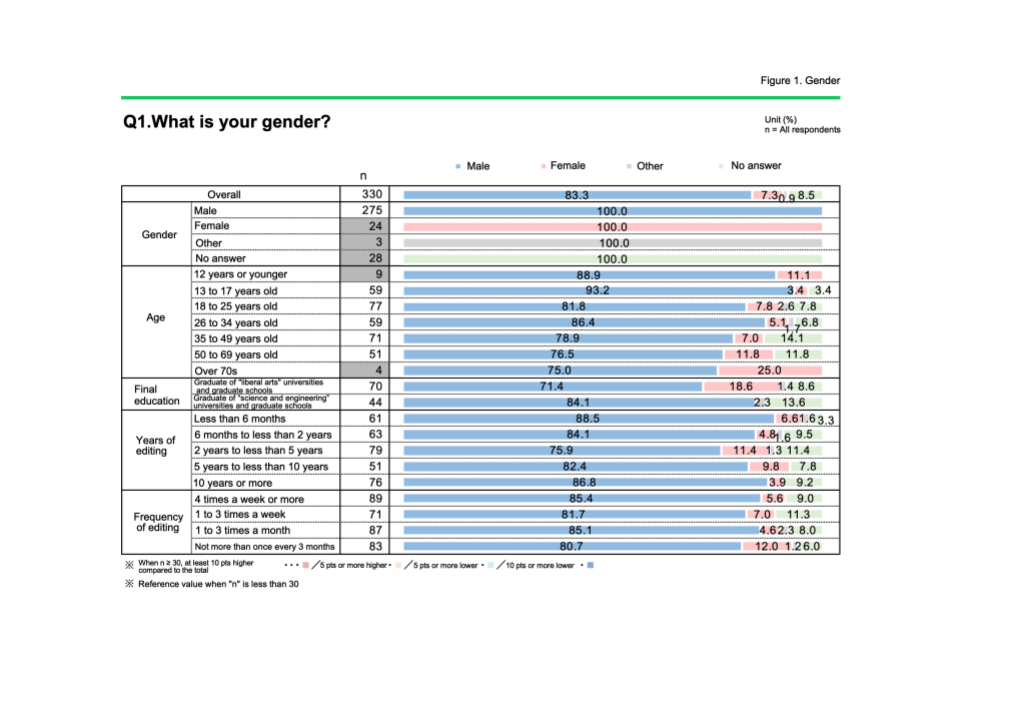
- pt (point): It refers to the percentage difference. See https://en.wikipedia.org/wiki/Percentage_point
- n: It refers to a sample size or number of samples. See https://en.wikipedia.org/wiki/Sampling_(statistics)
Q2. How old are you?
Figure 2 Age
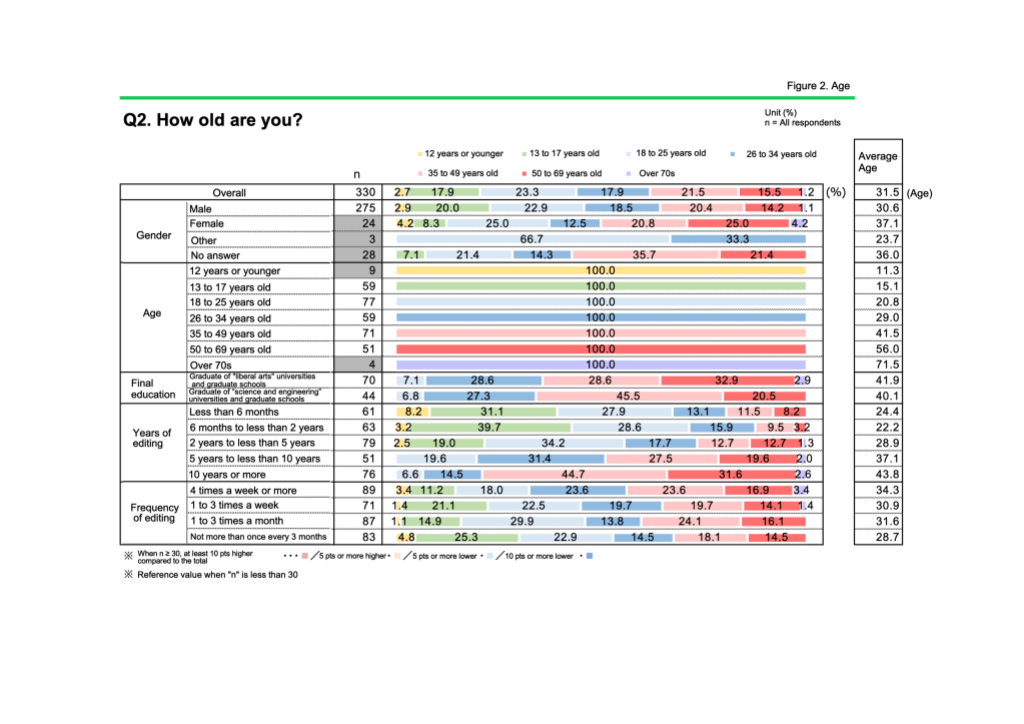
Q3. In what region do you live?
Figure 3 Place of Residence
[Breakdown of foreign countries (free entry by respondents)] China: 3/USA: 2/Hong Kong: 1/Europe: 1
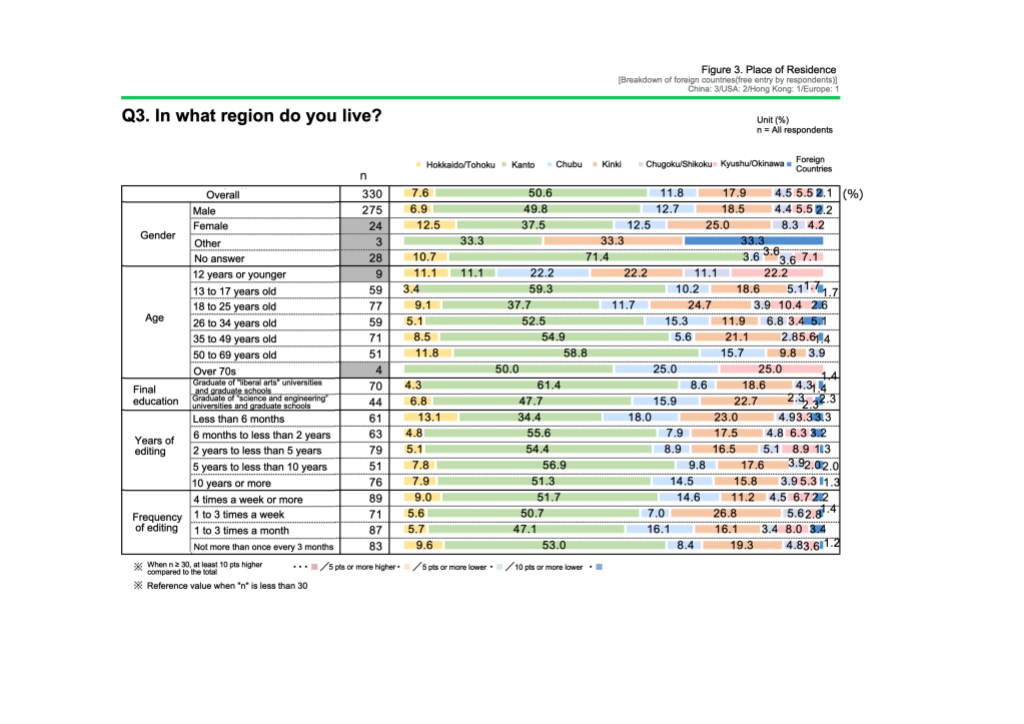
Q4. Where are you from?
Figure 4. Birthplace
[Breakdown of foreign countries (free entry by respondents)] China: 3/Shanghai: 2/Hong Kong: 1
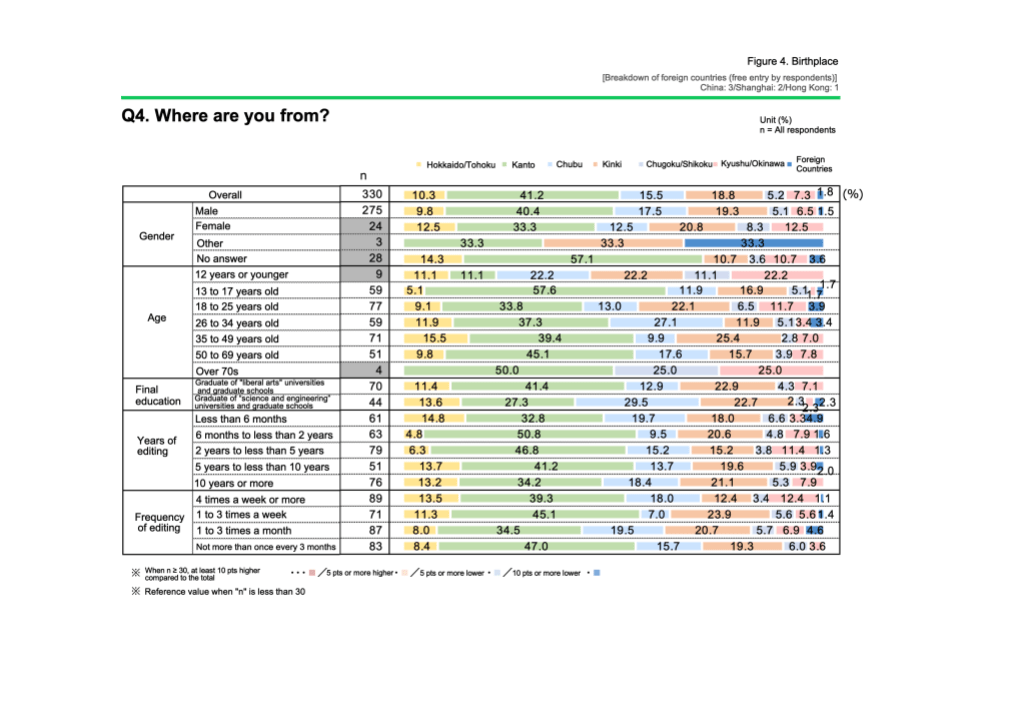
Q5. What is your occupation (school if you are a student)? (Select one)
Figure 5 Occupation (School)
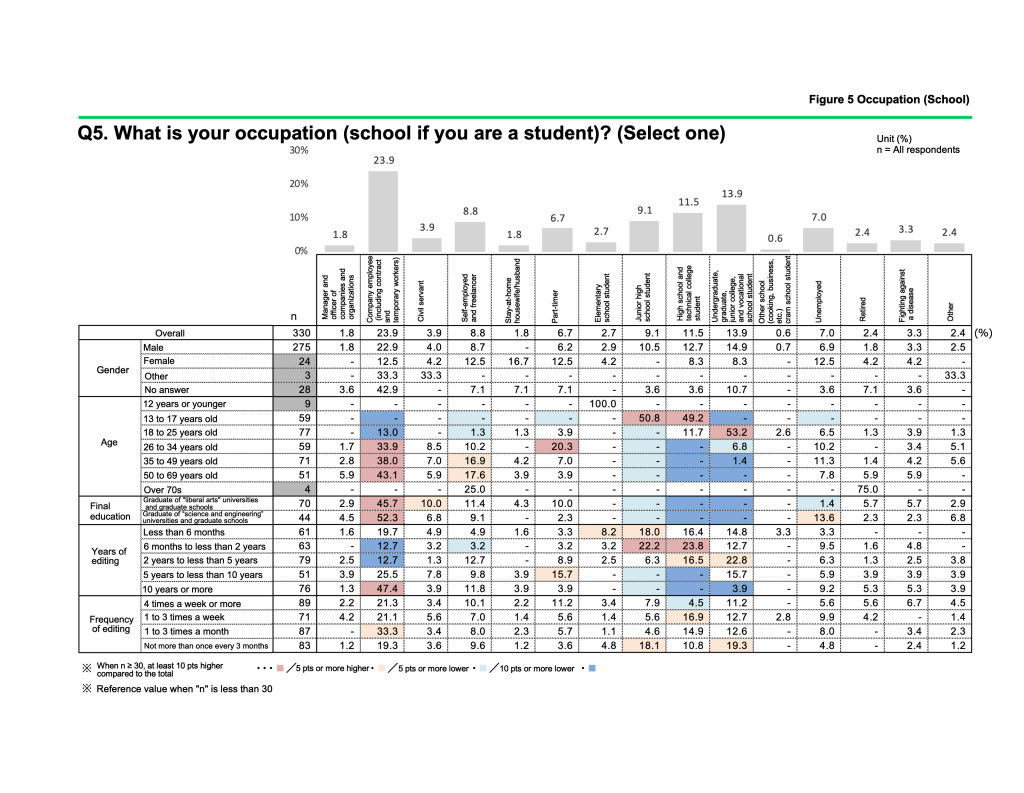
Q6. < 15 years old or older except junior high school students > Tell us your most recent academic history. (Select one) *If you are a student, tell us the school you go to.
Figure 6 Final Education
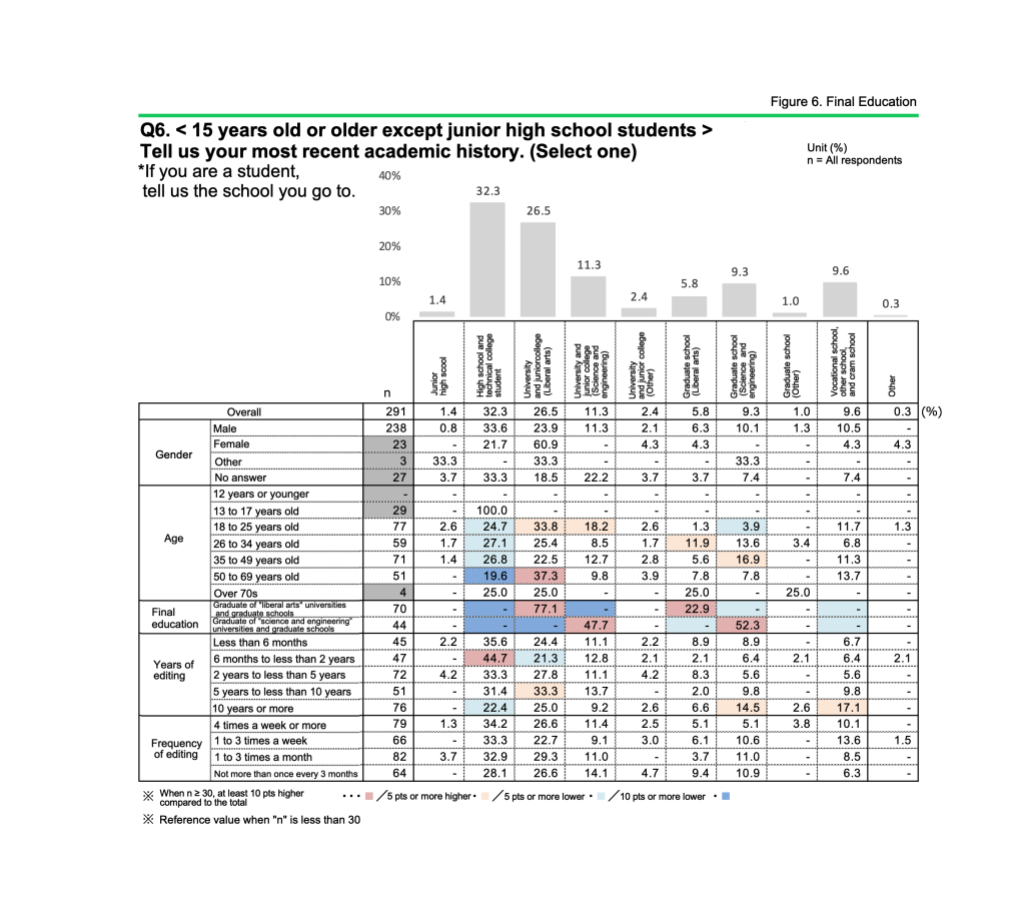
Figure 7. Final Education (Excluding Students)
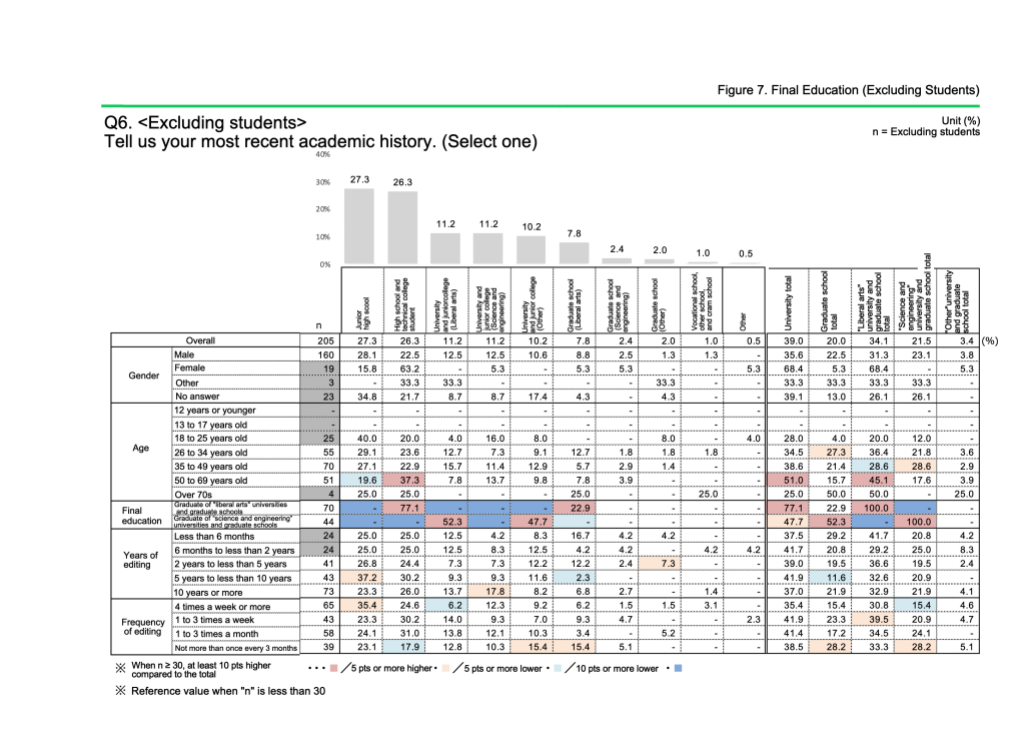
*Method for writing scores in the Report
- When “n” (sample size) is less than 30, the cell is grayed out as a reference value.
- For numbers (labels) in single-answer horizontal bar charts, numbers less than 1% are not shown.
2.Involvement in the Japanese Wikipedia
▶ Age to Start Editing
Q8. How old were you when you first edited the Japanese Wikipedia?
- As the age to start editing, 13 to 17 years old is the highest at about 30%, and the average starting age is 23.9.
- Those with a short editing period are more likely to start editing at the age of 17 or younger. On the other hand, the majority of those with a long editing period (5 years or more) have started editing at the age of 18 or older, and there is little bias in the age structure.
Figure 8 Age to Start Editing
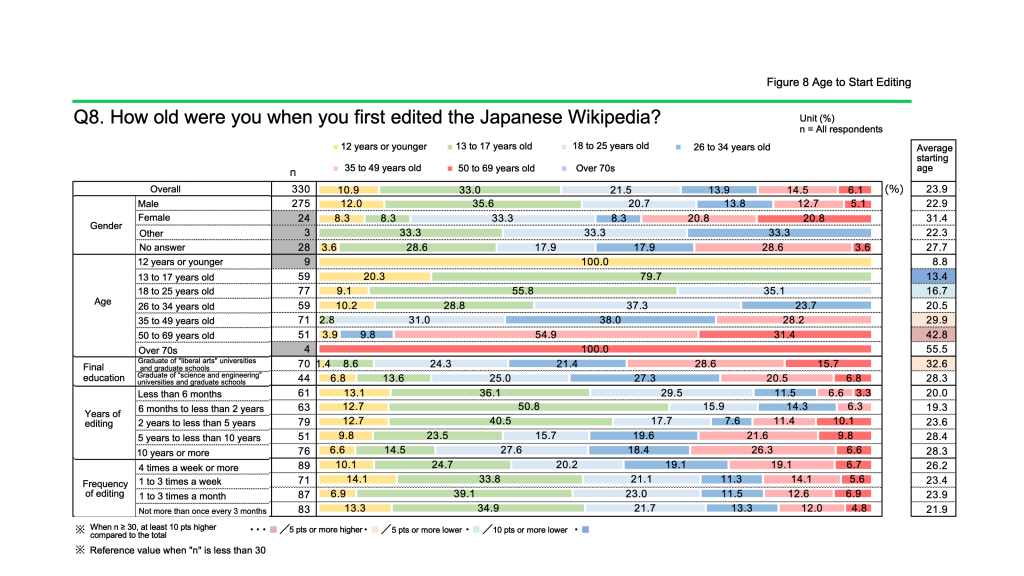
▶Years of Editing
Q9. How long has it been since you started editing the Japanese Wikipedia on a full scale? If you could roughly calculate, that would be fine. Select the one that applies.
- “5 years to less than 10 years” is the highest as years of editing. “Less than 6 months,” “6 months to less than 2 years,” “2 years to less than 5 years,” “2 years to less than 5 years,” and “10 years or more” are all in the upper 10% to lower 20% range, with a balanced mix of new and experienced editors.
- About half of the editors aged 35 to 49 and 50 to 69 have editing experience of “10 years or more.”
Figure 9. Years of Editing
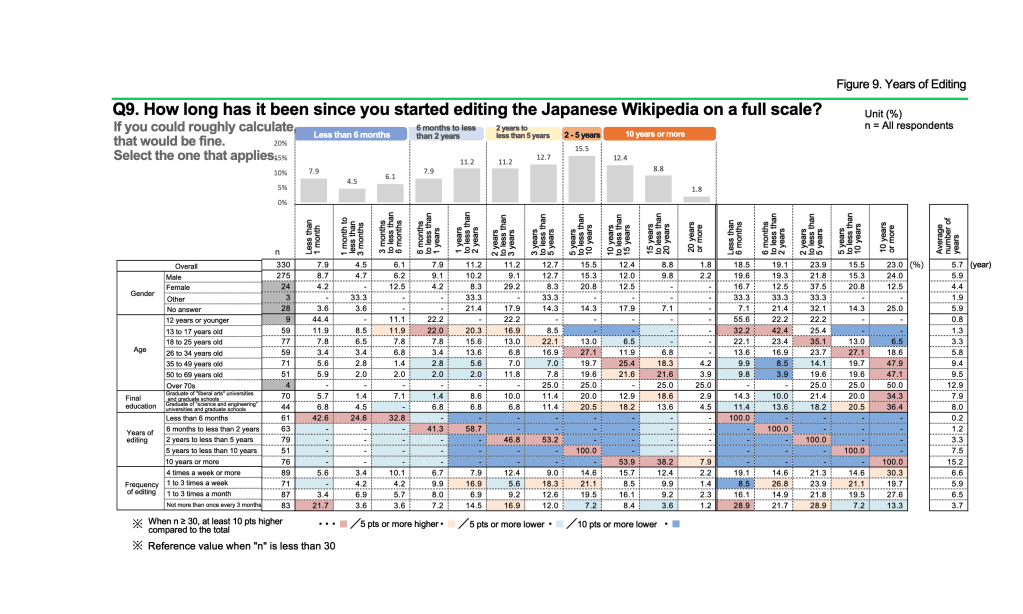
▶Field of Editing
Q10. In what field do you edit and write articles in the Japanese Wikipedia? Please select all that apply (multiple choice allowed).
- The top three fields of editing are “History and geography,” “Elaboration, proofreading, and maintenance,” and “Anime, manga, light novel, digital games, etc.”
- Older editors with longer years of editing and more editing frequency edit more and wider variety of fields.
- “History/Geography” is high for graduates of “liberal arts” schools, and “Natural science, mathematics, physics, chemistry, and biology” is high for those of “science” schools. Fields of editing depend on the area of expertise of each editor.
Figure 10 Field of Editing
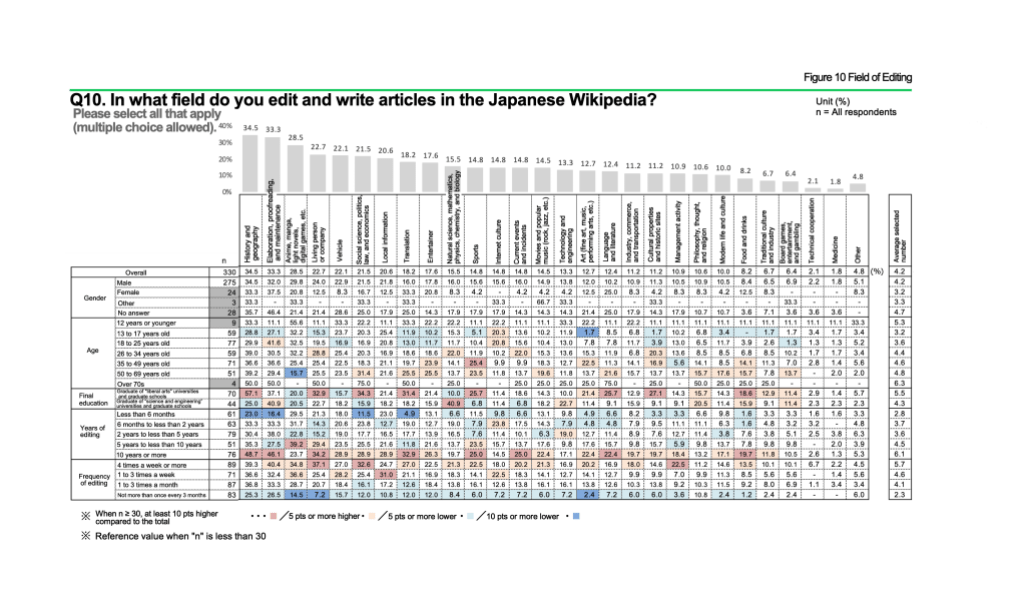
*light novel(s) :See https://en.wikipedia.org/wiki/Light_novel
▶Editing Frequency
Q11. How often do you edit the Japanese Wikipedia?
- “4 times a week or more,” “1 to 3 times a week,” “1 to 3 times a month,” and “Not more than once every 3 months” each account for 20% of the total, with an equal proportion of heavy, middle, and light users.
- Editors aged 50 to 69 are the most likely to edit almost every day, and those aged 26 to 34 are the most likely to edit at least 4 times a week, including 4 or 5 times a week.
- The longer the years of editing and writing, the higher the frequency of editing. Among those with years of editing of 10 years or more, one in four people edit almost every day.
Figure 11 Editing Frequency
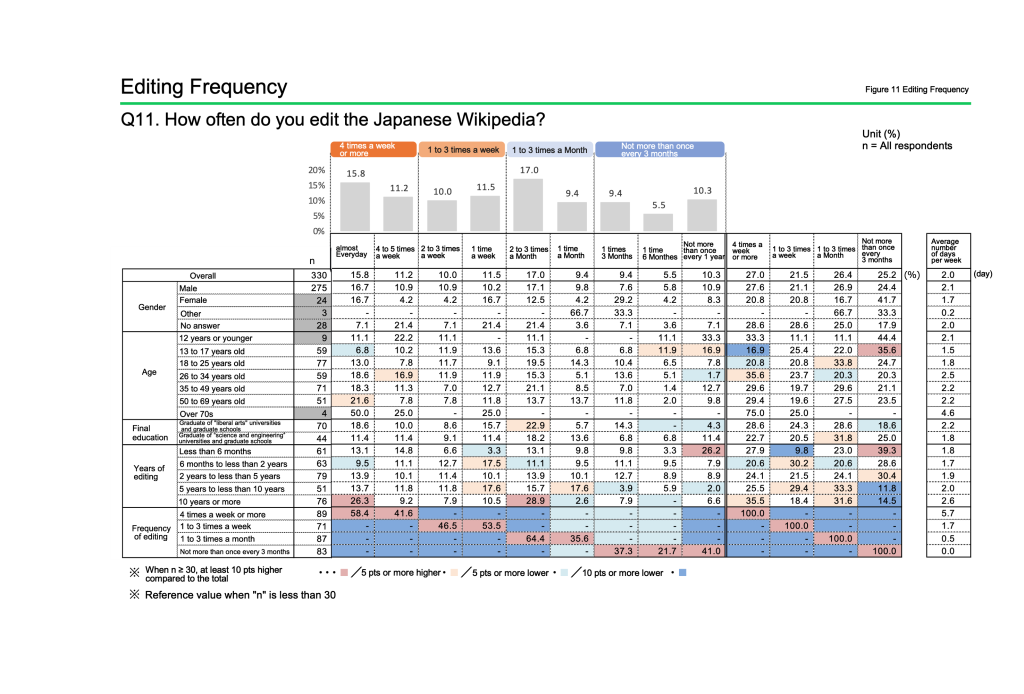
▶How Editors Started Editing
Q12. How did you start editing the Japanese Wikipedia? Please select all that apply.
- 60% of respondents said they wanted to correct the wrong information, followed by those who wanted to use their knowledge and skills and those who liked editing and writing articles.
- Those aged 25 or younger are more likely to be motivated by feelings of fulfillment and pride, indicating that they prefer the fact of participation itself.
- Those aged 50 to 69 are more likely than other age groups to choose “To use my knowledge and skills” and “To benefit my own study and learning.” The motivation to start editing is their appetite for learning.
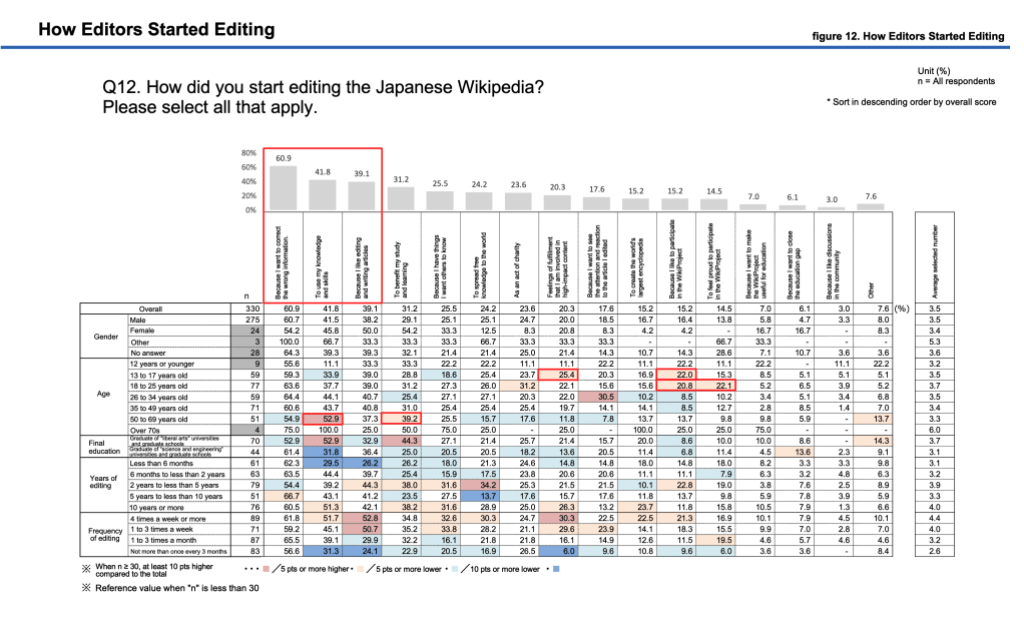
▶Motivation to Edit
Q13: What motivates you to edit the Japanese Wikipedia? Please select all that apply.
- The top three motivators are “Because I want to correct the wrong information,” “Because I like editing and writing articles,” and “To use my knowledge and skills.”
- Those with high levels of involvement in Wikipedia, such as “10 years or more” of editing experience and “4 times a week or more” of editing frequency are more likely to choose “To use my knowledge and skills” and “To benefit my study and learning.” The benefits associated with editing are thought to contribute to motivation.
Figure 13. Motivation to Edit and Write
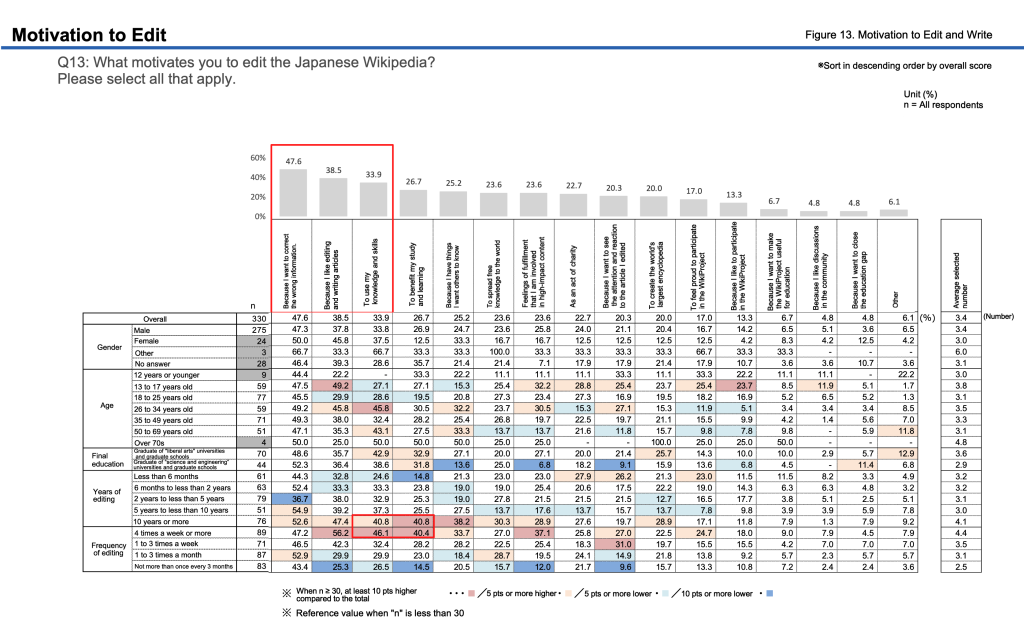
Continued in the second half.

Can you help us translate this article?
In order for this article to reach as many people as possible we would like your help. Can you translate this article to get the message out?
Start translation